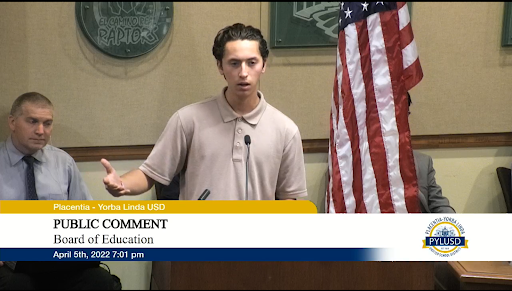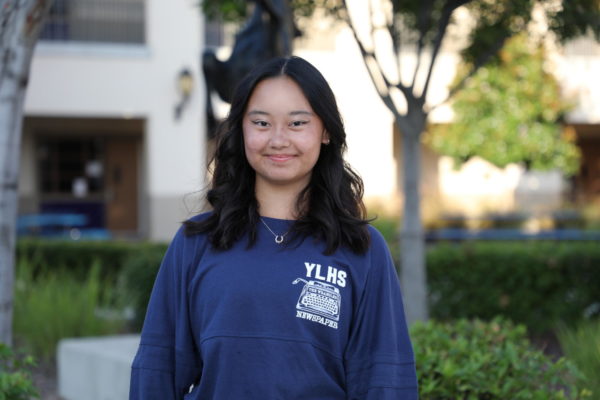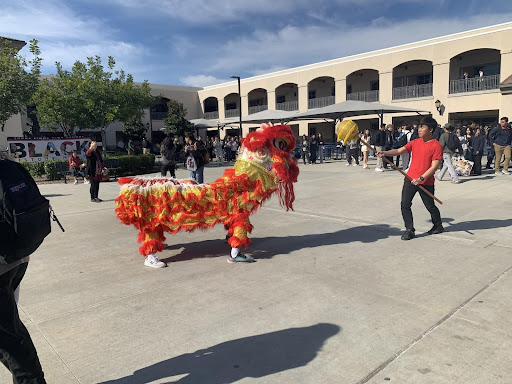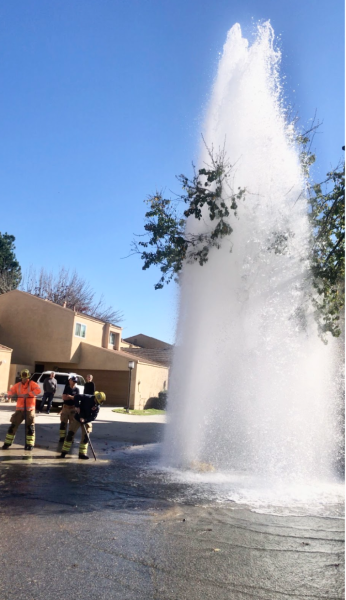Critical Race Theory Banned at Placentia-Unified School District
May 3, 2022
On Tuesday, April 5th, the Placentia-Yorba Linda School District Board (PYLUSD) voted to pass a resolution that banned the implementation of Critical Race Theory (CRT) in PYLUSD schools. As The Wrangler’s journalists have previously reported, “PYLUSD uses the California Ethnic Studies Model Curriculum definition for critical race theory, which it cites as ‘recogniz[ing] that race is not biologically real but is socially constructed and socially significant. It acknowledges that racism is embedded within systems and institutions that replicate racial inequality.’”
The following images show the text of the resolution, requested by Board Members, that was sent to them by PYLUSD Superintendent Dr. James Elsasser (who will return to Claremont Unified School District on July 1, 2022).
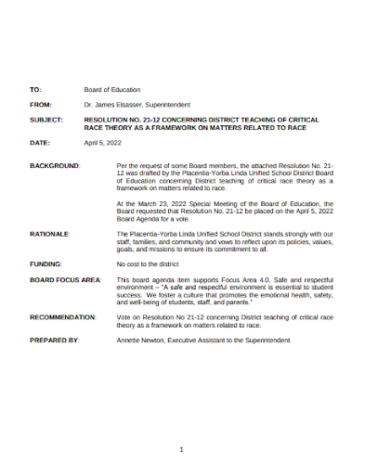
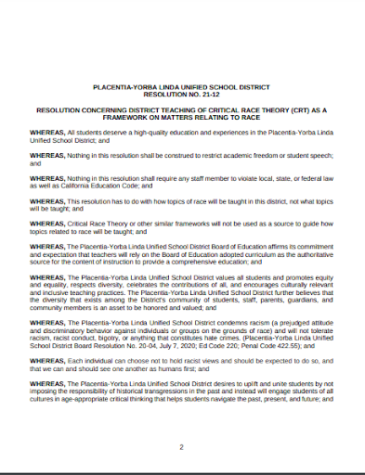
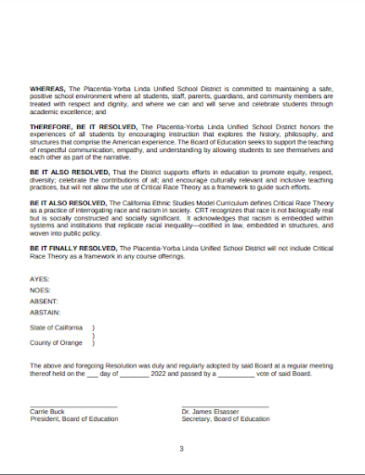
This was met with mixed reactions from students, teachers, parents, the general public and even the board members themselves. Camille Khong (11) from Yorba Linda High School made a compelling speech against the ban. She feels that:
“Personally, CRT…would allow the space for students to share and learn more about the history of the U.S.” and “though the vote has been passed, there is still a fight to change the bill as it lacks the substance to actually stop racism as [some people] would like.” Camille passionately summarizes that “most students oppose this bill as seen through the petitions and students who speak at the meetings; thus, I believe this is not the end of this ongoing fight.”
However, others believe that CRT itself would be the cause of the erasure of progress toward equality. Another student Esperanza High School’s Matthew Jones (12) also spoke eloquently that night. He brought up the fact that CRT is “inherently racist” and “is exactly what Martin Luther King Jr. taught against” when he said “that we should treat people based on the content of their character, not on their skin color.” Regarding the verdict, he says that:
“The importance of maintaining a moral-based curriculum depends on providing facts. Critical Race Theory is all about feelings with racial bias which is dangerous to unity in a school district” and that he is “very glad to know that Resolution 21-12 won’t affect existing curriculum and will preserve the legitimacy of it.”
A parent of a student at YLHS also spoke out in favor of the resolution. The mother (who wishes to remain anonymous) took a unifying stance when she made the plea for people to “preserve our history and not blame anybody” as well as “move forward and stop dividing this country.” She wanted the district to “find a way to come together…and ban CRT.”
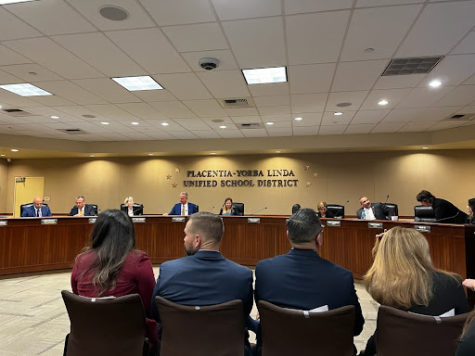
In conclusion, despite some strong attempts to romanticize it, CRT is accepted by some members of our community to be normalizing racism in schools. Some students like Camille insist that this topic is not going away, and others like Matthew stand firm behind the board’s decision to stop the spread of CRT at PYLUSD.
To watch the official recording, view the official agenda, and read the official transcript of the April 5th Board Meeting, click here.


